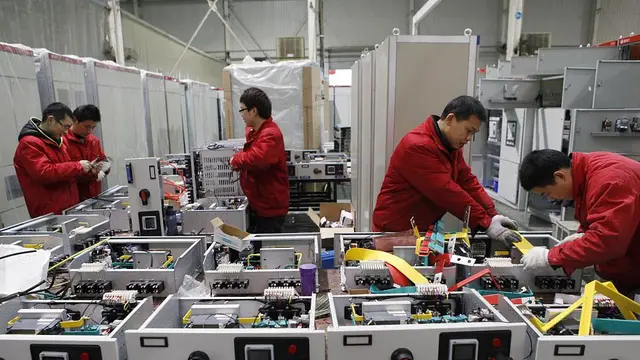Egypt has been facing escalating waves of terrorist attacks since the ouster of Islamist president Mohmed Morsi last year, and officials believe better education and moderate religious teachings can help counter terrorism.
"We need to exert increased effort to defeat this dark terrorism," said Interior Minister Mohamed Ibrahim as he addressed a conference on counter-terrorism organized by Al Gomhuria newspaper on Sunday.
He urged Al-Azhar, the world's top Sunni Islamic teaching institution, to spread the moderate instructions of Islam.
"The Ministry of Education should work to bring up our children free from extremism, through confident knowledge, with which the new generations could differentiate between fanatical and the genuine tolerant principals of Islam," Ibrahim added.
He also underscored the role of the Ministry of Culture in increasing public awareness against terrorism, and urged the Ministry of Social Solidarity to boost the role of non-governmental institutions to combat terrorism.
At the meeting, Egyptian Prime Minister Ibrahim Mahlab said called on all sides to stand united against terrorism.
The two-day conference addressed economic, security, religious, political, youth and education topics in combating the escalating phenomenon of extremism. However, the religious connections took the lion's share of the discussion.
Mahlab said moderate religious dialogue in addition to Egypt's soft power - referring to culture, media and art - lead the country's priorities in solving the terrorism crisis.
Both the Ministry of Endowment and the Al-Azhar were criticized for allowing for space for fanatic individuals from the Salafists, the Muslim Brotherhood, or any Islamist groups to spread their beliefs throughout religious quarters.
"There are over 120,000 mosques in Egypt, with moderate and hardline preachers" Sabry Ebadah, deputy to the Endowment Minister, told Xinhua.
Egyptians believe mosques are "dogma" for all, as opposed to an official platform for spreading moderate Islam. Accordingly, managing the mosques isn't an easy task, Ebadah explained.
He added that the ministry is working to activate the role of institutions as well as issuing licenses only to highly qualified individuals.
The Ministry of Endowment has also approved a unified Friday prayer speech which discusses the problems facing society without mixing politics with religion, as a step in avoiding differing religious interpretations which might incite peoples' sentiments against the government, Ebadah added.
Since the removal of the Islamist president Morsi, Egypt has been consumed by Islamist militancy, which took the Sinai Peninsula as a center stage for targeting the security forces as retaliation for Morsi supporters' victims who lost their lives in a harsh crackdown last August.
Egypt is attempting to restore its security and stability in order to pave the road to lure investments and tourism by all means. The country has been troubled by an ailing economy, over three years of turmoil, and the downfall of two presidents.
Such solutions in Egypt's war against terrorism as promoting arts and social awareness were also discussed at the meeting.
Prominent actress Fardous Abdel Hamid told Xinhua that art, film, music and poetry with their indirect manner in spreading awareness are better at being absorbed by people rather than direct political and religious speeches.
She urged the government to contribute to producing high quality art productions and not leave space for the private sector which is only interested in making profits.
Art is an artillery in combating terrorism and the country should increase its budget to produce better works which seek to illuminate the coming generations, the actress added. Enditem
 简体中文
简体中文

